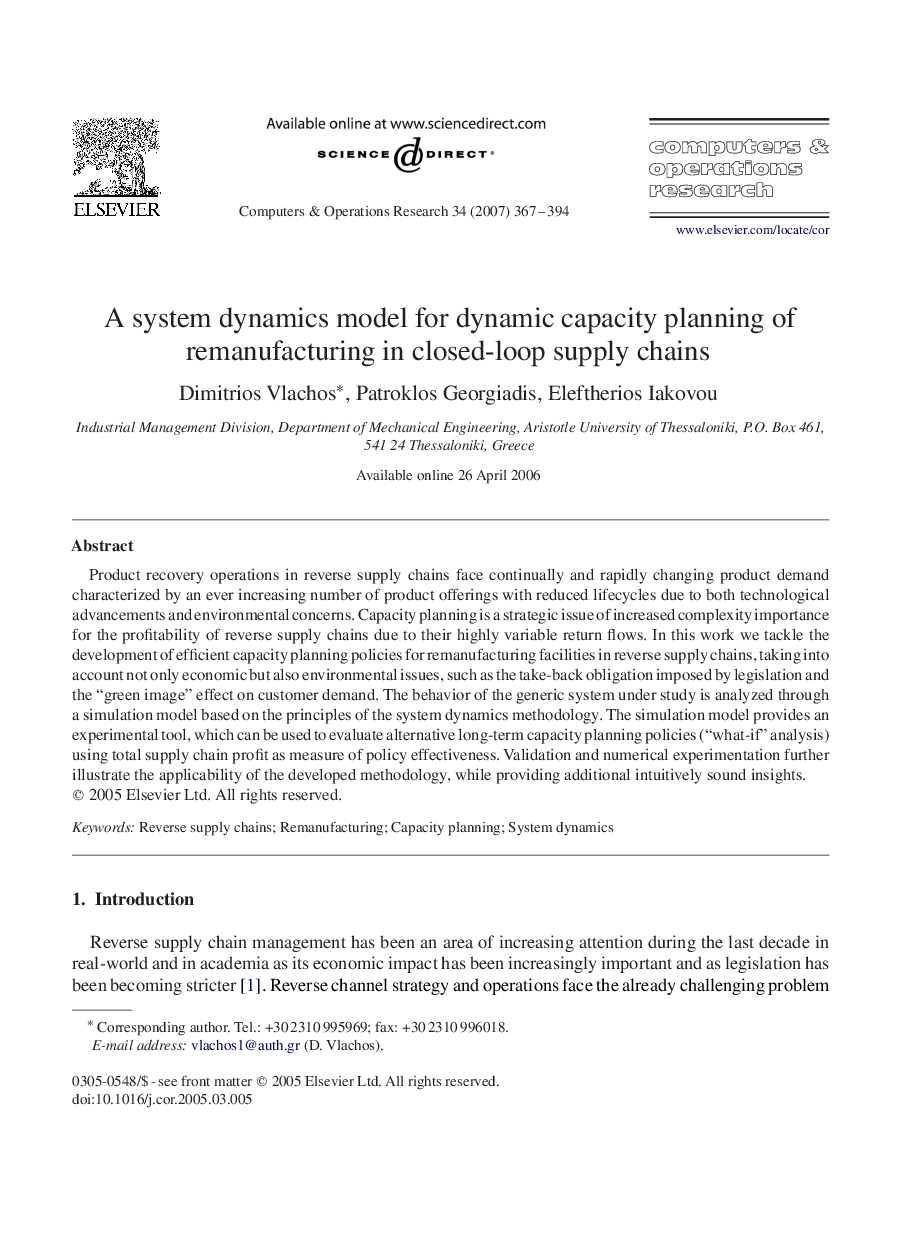| Article ID | Journal | Published Year | Pages | File Type |
|---|---|---|---|---|
| 476332 | Computers & Operations Research | 2007 | 28 Pages |
Product recovery operations in reverse supply chains face continually and rapidly changing product demand characterized by an ever increasing number of product offerings with reduced lifecycles due to both technological advancements and environmental concerns. Capacity planning is a strategic issue of increased complexity importance for the profitability of reverse supply chains due to their highly variable return flows. In this work we tackle the development of efficient capacity planning policies for remanufacturing facilities in reverse supply chains, taking into account not only economic but also environmental issues, such as the take-back obligation imposed by legislation and the “green image” effect on customer demand. The behavior of the generic system under study is analyzed through a simulation model based on the principles of the system dynamics methodology. The simulation model provides an experimental tool, which can be used to evaluate alternative long-term capacity planning policies (“what-if” analysis) using total supply chain profit as measure of policy effectiveness. Validation and numerical experimentation further illustrate the applicability of the developed methodology, while providing additional intuitively sound insights.
